#beholds
Text
The only reason why transphobes always ask “what is a woman” instead of “what is a man” is because we all know that a man is a featherless biped.
#shitpost#gender#trans#transgender#diogenes#BEHOLD A MAN!#transgenderism#the true gender binary: featherless bipeds and EVERYTHING ELSE
45K notes
·
View notes
Text
look, I know I've talked about this essay (?) before but like,
If you ever needed a good demonstration of the quote "Any sufficiently advanced technology is indistinguishable from magic", have I got an exercise for you.
Somebody made a small article explaining the basics of atomic theory but it's written in Anglish. Anglish is basically a made-up version of English where they remove any elements (words, prefixes, etc) that were originally borrowed from romance languages like french and latin, as well as greek and other foreign loanwords, keeping only those of germanic origin.
What happens is an english which is for the most part intelligible, but since a lot everyday english, and especially the scientific vocabulary, has has heavy latin and greek influence, they have to make up new words from the existing germanic-english vocabulary. For me it kind of reads super viking-ey.
Anyway when you read this article on atomic theory, in Anglish called Uncleftish Beholding, you get this text which kind of reads like a fantasy novel. Like in my mind it feels like it recontextualizes advanced scientific concepts to explain it to a viking audience from ancient times.
Even though you're familiar with the scientific ideas, because it bypasses the normal language we use for these concepts, you get a chance to examine these ideas as if you were a visitor from another civilization - and guess what, it does feel like it's about magic. It has a mythical quality to it, like it feels like a book about magic written during viking times. For me this has the same vibe as reading deep magic lore from a Robert Jordan book.
#off topic#literature#language#linguistics#science#science history#science fiction#fantasy#physics#atomic theory#anglish#chemistry#robert jordan#the wheel of time#uncleftish beholding
42K notes
·
View notes
Text
You Don’t Have to Wear a Crown To Be A Queen!
I know you see me wearing a gorgeous crown! But did you know you don’t need it to be an actual Queen!?
But you are a queen without! I even didn’t get the crown (only because I didn’t have an outfit) but really didn’t need it to know how much a queen I am. Even though we don’t always feel like it. Trust me! I have these days more often than not!
Look in the mirror Queen! What do you see? Not…
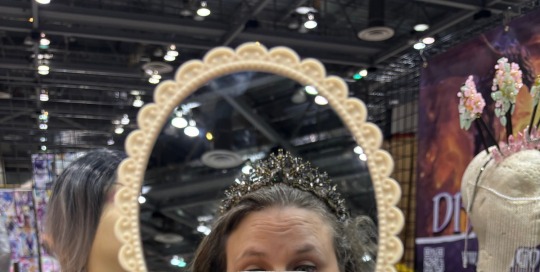
View On WordPress
#beanesther crown lookinthemirror#beyoubecauseeveryoneelseistaken#donotworry#mypersonalblog#womenbusinesses#womensexpo#womenwebsites#ateamhsv#beautifulinsideandout#beautyisintheeyeofthebeholder#beautyquotes#beholds#blog#blogger#confidence#eyeofthebeholder#FacebookPages#facts#fearfullyandwonderfullymade#God’shands#IFTTT#Instagram#self-confidence#support#united states#you can do this#youarebeautiful
0 notes
Text

Behold the biggest baguette ever created 🥖
Not a gif but wanted to post it there since it's really long lol
(Seems Tumblr can't handle the power of this baguette!)
13K notes
·
View notes
Text
A Guide to Historically Accurate Regency-Era Names

I recently received a message from a historical romance writer asking if I knew any good resources for finding historically accurate Regency-era names for their characters.
Not knowing any off the top of my head, I dug around online a bit and found there really isn’t much out there. The vast majority of search results were Buzzfeed-style listicles which range from accurate-adjacent to really, really, really bad.
I did find a few blog posts with fairly decent name lists, but noticed that even these have very little indication as to each name’s relative popularity as those statistical breakdowns really don't exist.
I began writing up a response with this information, but then I (being a research addict who was currently snowed in after a blizzard) thought hey - if there aren’t any good resources out there why not make one myself?
As I lacked any compiled data to work from, I had to do my own data wrangling on this project. Due to this fact, I limited the scope to what I thought would be the most useful for writers who focus on this era, namely - people of a marriageable age living in the wealthiest areas of London.
So with this in mind - I went through period records and compiled the names of 25,000 couples who were married in the City of Westminster (which includes Mayfair, St. James and Hyde Park) between 1804 to 1821.
So let’s see what all that data tells us…
To begin - I think it’s hard for us in the modern world with our wide and varied abundance of first names to conceive of just how POPULAR popular names of the past were.
If you were to take a modern sample of 25-year-old (born in 1998) American women, the most common name would be Emily with 1.35% of the total population. If you were to add the next four most popular names (Hannah, Samantha, Sarah and Ashley) these top five names would bring you to 5.5% of the total population. (source: Social Security Administration)
If you were to do the same survey in Regency London - the most common name would be Mary with 19.2% of the population. Add the next four most popular names (Elizabeth, Ann, Sarah and Jane) and with just 5 names you would have covered 62% of all women.
To hit 62% of the population in the modern survey it would take the top 400 names.
The top five Regency men’s names (John, William, Thomas, James and George) have nearly identical statistics as the women’s names.
I struggled for the better part of a week with how to present my findings, as a big list in alphabetical order really fails to get across the popularity factor and also isn’t the most tumblr-compatible format. And then my YouTube homepage recommended a random video of someone ranking all the books they’d read last year - and so I present…
The Regency Name Popularity Tier List
The Tiers
S+ - 10% of the population or greater. There is no modern equivalent to this level of popularity. 52% of the population had one of these 7 names.
S - 2-10%. There is still no modern equivalent to this level of popularity. Names in this percentage range in the past have included Mary and William in the 1880s and Jennifer in the late 1970s (topped out at 4%).
A - 1-2%. The top five modern names usually fall in this range. Kids with these names would probably include their last initial in class to avoid confusion. (1998 examples: Emily, Sarah, Ashley, Michael, Christopher, Brandon.)
B - .3-1%. Very common names. Would fall in the top 50 modern names. You would most likely know at least 1 person with these names. (1998 examples: Jessica, Megan, Allison, Justin, Ryan, Eric)
C - .17-.3%. Common names. Would fall in the modern top 100. You would probably know someone with these names, or at least know of them. (1998 examples: Chloe, Grace, Vanessa, Sean, Spencer, Seth)
D - .06-.17%. Less common names. In the modern top 250. You may not personally know someone with these names, but you’re aware of them. (1998 examples: Faith, Cassidy, Summer, Griffin, Dustin, Colby)
E - .02-.06%. Uncommon names. You’re aware these are names, but they are not common. Unusual enough they may be remarked upon. (1998 examples: Calista, Skye, Precious, Fabian, Justice, Lorenzo)
F - .01-.02%. Rare names. You may have heard of these names, but you probably don’t know anyone with one. Extremely unusual, and would likely be remarked upon. (1998 examples: Emerald, Lourdes, Serenity, Dario, Tavian, Adonis)
G - Very rare names. There are only a handful of people with these names in the entire country. You’ve never met anyone with this name.
H - Virtually non-existent. Names that theoretically could have existed in the Regency period (their original source pre-dates the early 19th century) but I found fewer than five (and often no) period examples of them being used in Regency England. (Example names taken from romance novels and online Regency name lists.)
Just to once again reinforce how POPULAR popular names were before we get to the tier lists - statistically, in a ballroom of 100 people in Regency London: 80 would have names from tiers S+/S. An additional 15 people would have names from tiers A/B and C. 4 of the remaining 5 would have names from D/E. Only one would have a name from below tier E.
Women's Names
S+ Mary, Elizabeth, Ann, Sarah
S - Jane, Mary Ann+, Hannah, Susannah, Margaret, Catherine, Martha, Charlotte, Maria
A - Frances, Harriet, Sophia, Eleanor, Rebecca
B - Alice, Amelia, Bridget~, Caroline, Eliza, Esther, Isabella, Louisa, Lucy, Lydia, Phoebe, Rachel, Susan
C - Ellen, Fanny*, Grace, Henrietta, Hester, Jemima, Matilda, Priscilla
D - Abigail, Agnes, Amy, Augusta, Barbara, Betsy*, Betty*, Cecilia, Christiana, Clarissa, Deborah, Diana, Dinah, Dorothy, Emily, Emma, Georgiana, Helen, Janet^, Joanna, Johanna, Judith, Julia, Kezia, Kitty*, Letitia, Nancy*, Ruth, Winifred>
E - Arabella, Celia, Charity, Clara, Cordelia, Dorcas, Eve, Georgina, Honor, Honora, Jennet^, Jessie*^, Joan, Joyce, Juliana, Juliet, Lavinia, Leah, Margery, Marian, Marianne, Marie, Mercy, Miriam, Naomi, Patience, Penelope, Philadelphia, Phillis, Prudence, Rhoda, Rosanna, Rose, Rosetta, Rosina, Sabina, Selina, Sylvia, Theodosia, Theresa
F - (selected) Alicia, Bethia, Euphemia, Frederica, Helena, Leonora, Mariana, Millicent, Mirah, Olivia, Philippa, Rosamund, Sybella, Tabitha, Temperance, Theophila, Thomasin, Tryphena, Ursula, Virtue, Wilhelmina
G - (selected) Adelaide, Alethia, Angelina, Cassandra, Cherry, Constance, Delilah, Dorinda, Drusilla, Eva, Happy, Jessica, Josephine, Laura, Minerva, Octavia, Parthenia, Theodora, Violet, Zipporah
H - Alberta, Alexandra, Amber, Ashley, Calliope, Calpurnia, Chloe, Cressida, Cynthia, Daisy, Daphne, Elaine, Eloise, Estella, Lilian, Lilias, Francesca, Gabriella, Genevieve, Gwendoline, Hermione, Hyacinth, Inez, Iris, Kathleen, Madeline, Maude, Melody, Portia, Seabright, Seraphina, Sienna, Verity
Men's Names
S+ John, William, Thomas
S - James, George, Joseph, Richard, Robert, Charles, Henry, Edward, Samuel
A - Benjamin, (Mother’s/Grandmother’s maiden name used as first name)#
B - Alexander^, Andrew, Daniel, David>, Edmund, Francis, Frederick, Isaac, Matthew, Michael, Patrick~, Peter, Philip, Stephen, Timothy
C - Abraham, Anthony, Christopher, Hugh>, Jeremiah, Jonathan, Nathaniel, Walter
D - Adam, Arthur, Bartholomew, Cornelius, Dennis, Evan>, Jacob, Job, Josiah, Joshua, Lawrence, Lewis, Luke, Mark, Martin, Moses, Nicholas, Owen>, Paul, Ralph, Simon
E - Aaron, Alfred, Allen, Ambrose, Amos, Archibald, Augustin, Augustus, Barnard, Barney, Bernard, Bryan, Caleb, Christian, Clement, Colin, Duncan^, Ebenezer, Edwin, Emanuel, Felix, Gabriel, Gerard, Gilbert, Giles, Griffith, Harry*, Herbert, Humphrey, Israel, Jabez, Jesse, Joel, Jonas, Lancelot, Matthias, Maurice, Miles, Oliver, Rees, Reuben, Roger, Rowland, Solomon, Theophilus, Valentine, Zachariah
F - (selected) Abel, Barnabus, Benedict, Connor, Elijah, Ernest, Gideon, Godfrey, Gregory, Hector, Horace, Horatio, Isaiah, Jasper, Levi, Marmaduke, Noah, Percival, Shadrach, Vincent
G - (selected) Albion, Darius, Christmas, Cleophas, Enoch, Ethelbert, Gavin, Griffin, Hercules, Hugo, Innocent, Justin, Maximilian, Methuselah, Peregrine, Phineas, Roland, Sebastian, Sylvester, Theodore, Titus, Zephaniah
H - Albinus, Americus, Cassian, Dominic, Eric, Milo, Rollo, Trevor, Tristan, Waldo, Xavier
# Men were sometimes given a family surname (most often their mother's or grandmother's maiden name) as their first name - the most famous example of this being Fitzwilliam Darcy. If you were to combine all surname-based first names as a single 'name' this is where the practice would rank.
*Rank as a given name, not a nickname
+If you count Mary Ann as a separate name from Mary - Mary would remain in S+ even without the Mary Anns included
~Primarily used by people of Irish descent
^Primarily used by people of Scottish descent
>Primarily used by people of Welsh descent
I was going to continue on and write about why Regency-era first names were so uniform, discuss historically accurate surnames, nicknames, and include a little guide to finding 'unique' names that are still historically accurate - but this post is already very, very long, so that will have to wait for a later date.
If anyone has any questions/comments/clarifications in the meantime feel free to message me.
Methodology notes: All data is from marriage records covering six parishes in the City of Westminster between 1804 and 1821. The total sample size was 50,950 individuals.
I chose marriage records rather than births/baptisms as I wanted to focus on individuals who were adults during the Regency era rather than newborns. I think many people make the mistake when researching historical names by using baby name data for the year their story takes place rather than 20 to 30 years prior, and I wanted to avoid that. If you are writing a story that takes place in 1930 you don’t want to research the top names for 1930, you need to be looking at 1910 or earlier if you are naming adult characters.
I combined (for my own sanity) names that are pronounced identically but have minor spelling differences: i.e. the data for Catherine also includes Catharines and Katherines, Susannah includes Susannas, Phoebe includes Phebes, etc.
The compound 'Mother's/Grandmother's maiden name used as first name' designation is an educated guesstimate based on what I recognized as known surnames, as I do not hate myself enough to go through 25,000+ individuals and confirm their mother's maiden names. So if the tally includes any individuals who just happened to be named Fitzroy/Hastings/Townsend/etc. because their parents liked the sound of it and not due to any familial relations - my bad.
I did a small comparative survey of 5,000 individuals in several rural communities in Rutland and Staffordshire (chosen because they had the cleanest data I could find and I was lazy) to see if there were any significant differences between urban and rural naming practices and found the results to be very similar. The most noticeable difference I observed was that the S+ tier names were even MORE popular in rural areas than in London. In Rutland between 1810 and 1820 Elizabeths comprised 21.4% of all brides vs. 15.3% in the London survey. All other S+ names also saw increases of between 1% and 6%. I also observed that the rural communities I surveyed saw a small, but noticeable and fairly consistent, increase in the use of names with Biblical origins.
Sources of the records I used for my survey:
Ancestry.com. England & Wales Marriages, 1538-1988 [database on-line].
Ancestry.com. Westminster, London, England, Church of England Marriages and Banns, 1754-1935 [database on-line].
#history#regency#1800s#1810s#names#london#writing resources#regency romance#jane austen#bridgerton#bridgerton would be an exponentially better show if daphne's name was dorcas#behold - the reason i haven't posted in three weeks
10K notes
·
View notes
Text

Beholding—
Jon is my comfort drawing :7
#tma#art#artists on tumblr#the magnus archives#jon sims#digital art#jonathan sims#tma fanart#the beholding#jonny sims#the eye#swiffin
10K notes
·
View notes
Text


my most self indulgent drawing yet - hick Lae'zel + human ver
inspired by this post
#bg3#lae'zel#human'zel#my art#behold my magnum opus#a complete 180 from my last lae lmaoo#I can almost hear her giving me shit for not breaking in the brim of my hat
4K notes
·
View notes
Text
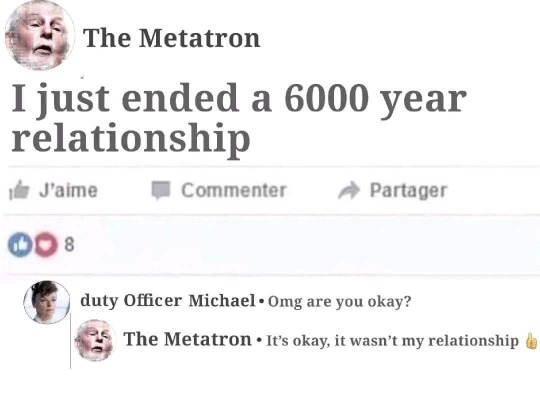
#michael sheen#good omens#ineffable husbands#good ineffable omens#aziraphale#david tennant#good ineffable husbands#welsh seduction machine#crowley#metatron#behold the Metatron#derek jacobi#soft scottish hipster gigolo#aziraceow#6000 years of pining
4K notes
·
View notes
Text



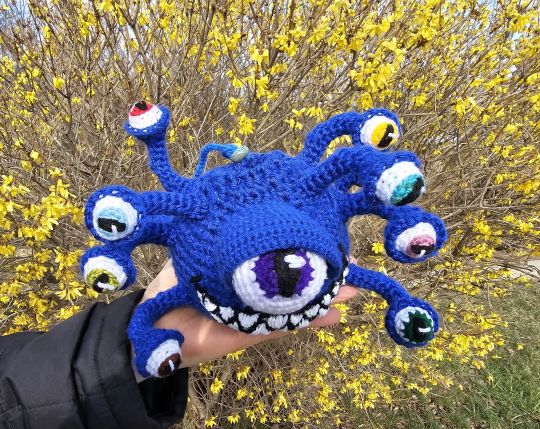






Crochet beholder dice bag for a dear friend. ❤️
Patterns:
Beholder Crochet Amigurumi Pattern by CraftyTibbles
Plush Beholder Dice Bag by MoreThan1WayCrochet (not currently available)
A lot of freehanding
Materials:
Big Twist Twinkle Sapphire worsted acrylic yarn
Any brand worsted weight yarn in white, black, and other optional colors for the different eye colors and different-colored interior layer
White fingering weight yarn for the teeth embroidery
(Optional) Wide-hole bead for closing the drawstring
4.0 mm (G) hook
Darning needle
Pins
4K notes
·
View notes
Photo
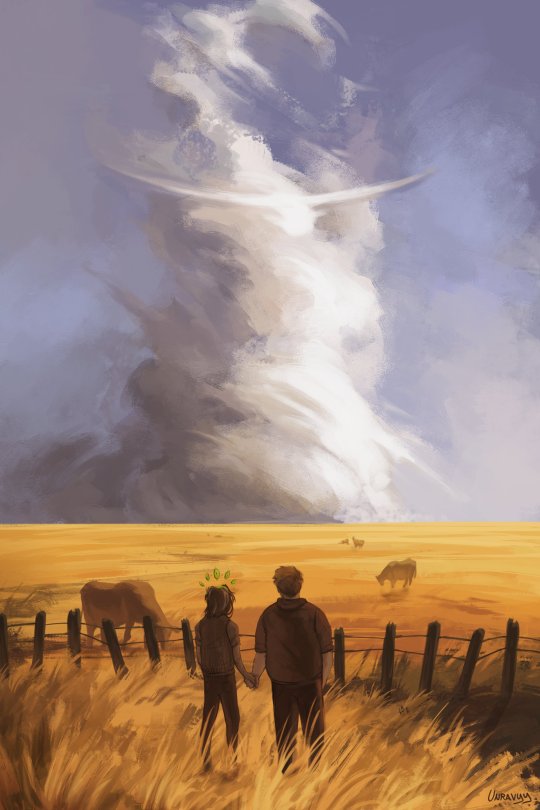
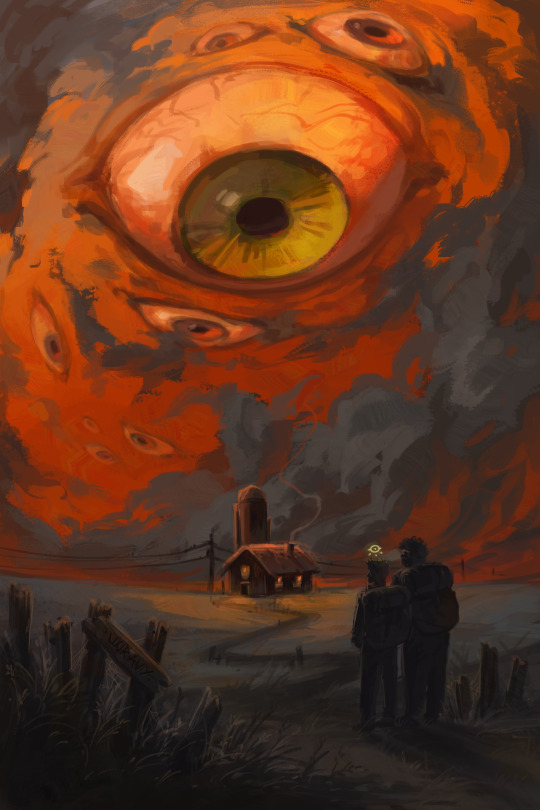
UPDATE: TYSM for the HUGE amount of love on this and since a few requested I do have prints of these! You can find them here: https://www.inprnt.com/gallery/unravy/ ❤
"Obviously, I’m going to tell you if I see any good cows."
vs
“I open the door!”
these two are a two pieces sequence drawings, but made a year apart lmao
#tma#my art#tma fanart#the magnus archives#clouds#the eye#magnuspod#jon sims#jonathan sims#martin blackwood#jonmart#the eye opens#the web#digital art#drawing#art#jonmartin#the archivist#the beholding#let me know if you see any good cows#the entities#field#ceaseless watcher#scopophobia#creature#jmart
31K notes
·
View notes
Text

Nimbasa trio, gremlin edition.
They’re theater kids, your honor. They’re brewing crimes as we speak.
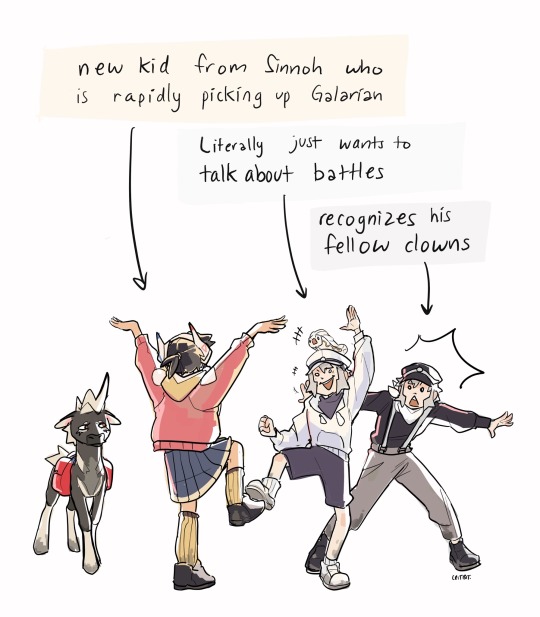
BONUS CRACK DOODLE THAT I EXORCISED DIRECTLY FROM MY BRAIN:
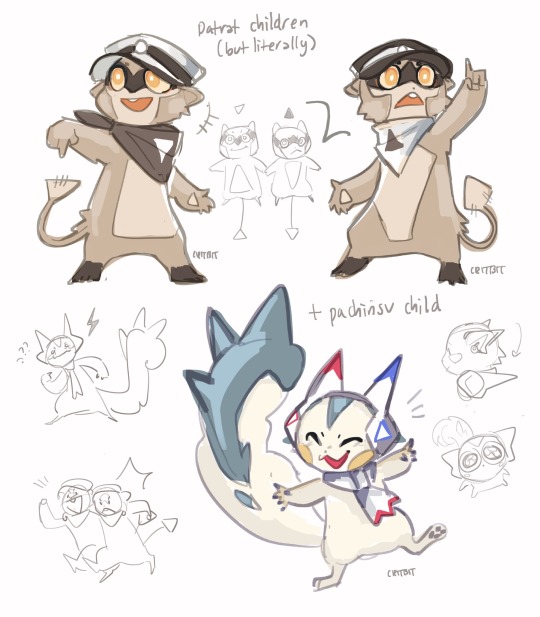
Some patrat children and a pachirisu child!
(Check here for my submas stuff!)
#You heard of twin dragons au and all that but behold— everybody’s now a rodent.#rodent au#literal subway rat and electric squirrel time#((THIS IS A JOKE AU. I WILL NEVER CONTINUE IT. FEEL FREE TO SANDBOX IT.))#art#pokemon#sketchbook#submas#myart#fanart#pokemon ingo#subway boss ingo#elesa#ingo#emmet#blitzle#tynamo#pachirisu#patrat#pokemon emmet#subway boss emmet#nimbasa trio#gym leader elesa
4K notes
·
View notes
Text
someone was talking about Alice and Celia being anagrams and it’s times like this I really just hate Jonny Sims. Because you see, your first instinct is to theorize what that could mean because it’s got to mean something right? Wrong. This is the same writer who plagiarized his own birth certificate for a main character and then named three important re-occurring characters Michael….IN A AUDIO PODCAST.
Jonny sims is a genius writer, but he also wrote “there is no such thing as a name” about himself and his tendency to just pick names based on whatever first comes to mind. HE VOICED A CHARACTER NAMED DONNY SUMS. DONNY FUCKING SUMS ARE YOU KIDDING ME-
#Donny sums makes me inexplicably furious#the character said Donny sums and I just went#….no it can’t be….they wouldn’t#and low and behold here comes Jonny sims to voice the character of donny sums#every time I remember it I believe it shaves 10 years off my life span#donny sums#tiny terrors#tma#the magnus archives#the magnus protocol spoilers#the magnus protocol#the magnus pod#tmagp spoilers#tmagp#jonathan sims#celia#alice dyer#michael distortion#michael shelley#jonny sims#jonny d'ville#I’m going on strike#no more jon of any sort and no more Michael#I’m revoking his Michael privilege
3K notes
·
View notes
Text
Examples of jokes I think Danny would make daily, but I haven't managed to write them into any of my fics yet:
Sam: Could you pass the remote?
Danny: You can pry it from my cold, dead hands.
Danny hands it over with no fuss.
-
Tucker: Hey, pass the ketchup
Danny: Over my dead body!
Danny arcs the ketchup over his head as he passes it to Tucker.
-
Jazz, calling through the house: Danny?! Where are you??
Danny on his bed: ON MY DEATH BED
-
Danny walking into any room, anywhere, at any given moment: this place is haunted
The joke is that it’s him. He's the ghost haunting it. Sam and Tucker hate this one because of how often he says it.
-
Goes ghost before he uses the phrases "You killed me" or "I'm dead" when something is funny.
-
Jazz whacks him over the head. (deserved)
Danny goes ghost the second her hand makes contact: MURDERER
-
Jazz: could you help me with-
Danny: I can't. I'm dead.
-
The classic "I guess I'll die" gag.
Tucker: You should probably go deal with that ghost, huh?
Danny: I guess I'll die
Goes ghost and flies off.
-
Dash: How about you eat shit and die
Danny: Well, I've already done one of those things.
Dash: D:
-
Sam, could be talking about literally anything: I would rather die
Danny: Same.
Sam: -_-
-
Sam: Danny, what did you do?!
Danny, who messed up: .....Deadmen tell no tales.
-
Danny, anytime anyone accidentally wakes him up: you're being loud enough to awaken the dead.
-
Danny: Paulina looks so pretty today
Sam: Seriously? You still have a crush on her? You know she'll never like you back.
Danny: you're being necrophobic
#danny phantom#i know most of these have probably been done before#just pretend you haven't seen them before and behold my creative genius
3K notes
·
View notes
Text
𝙲𝚛𝚘𝚠𝚎𝚍 𝙵𝚛𝚎𝚎 𝙰𝚞𝚐𝚞𝚜𝚝 𝟸𝟶𝟸𝟹 𝙼𝚘𝚗𝚝𝚑𝚕𝚢 𝙲𝚞𝚜𝚝𝚘𝚖𝚎𝚛 𝚂𝚙𝚎𝚌𝚒𝚊𝚕!
lm.facebook.com/l.php
𝙲𝚛𝚘𝚠𝚎𝚍 𝙵𝚛𝚎𝚎 𝚊𝚛𝚎 𝚊𝚞𝚝𝚑𝚎𝚗𝚝𝚒𝚌, 𝚘𝚛𝚐𝚊𝚗𝚒𝚌, 𝚖𝚊𝚗𝚢 𝚊𝚛𝚎 𝚜𝚞𝚛𝚟𝚒𝚟𝚘𝚛-𝚖𝚊𝚍𝚎 𝚏𝚛𝚘𝚖 𝚊𝚌𝚝𝚞𝚊𝚕 𝚕𝚊𝚍𝚒𝚎𝚜 𝚠𝚑𝚘 𝚠𝚎𝚛𝚎 𝚑𝚞𝚖𝚊𝚗 𝚝𝚛𝚊𝚏𝚏𝚒𝚌𝚔𝚎𝚍 𝚒𝚗 𝚝𝚑𝚎𝚒𝚛 𝚊𝚛𝚎𝚊.
𝚂𝚘 𝚠𝚑𝚎𝚗 𝚢𝚘𝚞 𝚙𝚞𝚛𝚌𝚑𝚊𝚜𝚎 𝚘𝚗𝚎 𝚘𝚏 𝚝𝚑𝚎𝚜𝚎 𝚒𝚝𝚎𝚖𝚜 𝚠𝚑𝚎𝚝𝚑𝚎𝚛 𝚒𝚝 𝚋𝚎: 𝚊𝚝-𝚛𝚒𝚜𝚔-𝚢𝚘𝚞𝚝𝚑-𝚖𝚊𝚍𝚎 𝚌𝚊𝚗𝚍𝚕𝚎𝚜, 𝚙𝚘𝚜𝚒𝚝-𝚝𝚎𝚎𝚜, 𝚓𝚎𝚠𝚎𝚕𝚛𝚢, 𝚑𝚘𝚖𝚎 𝚒𝚝𝚎𝚖𝚜 𝚑𝚊𝚗𝚍-𝚖𝚊𝚍𝚎! 𝚈𝚘𝚞 𝚊𝚛𝚎 𝚑𝚎𝚕𝚙𝚒𝚗𝚐 𝚜𝚙𝚛𝚎𝚊𝚍 𝚊𝚠𝚊𝚛𝚎𝚗𝚎𝚜𝚜 𝚘𝚏 𝚑𝚞𝚖𝚊𝚗 𝚝𝚛𝚊𝚏𝚏𝚒𝚌𝚔𝚒𝚗𝚐 𝚊𝚗𝚍 𝚑𝚎𝚕𝚙𝚒𝚗𝚐 𝚝𝚑𝚎𝚜𝚎 𝚜𝚞𝚛𝚟𝚒𝚟𝚘𝚛𝚜 𝚑𝚊𝚟𝚎 𝚊 𝚋𝚎𝚝𝚝𝚎𝚛 𝚕𝚒𝚏𝚎 𝚠𝚒𝚝𝚑 𝚝𝚑𝚎𝚒𝚛 𝚏𝚊𝚖𝚒𝚕𝚒𝚎𝚜!
𝚃𝚑𝚒𝚜 𝚖𝚘𝚗𝚝𝚑…
View On WordPress
#beyoubecauseeveryoneelseistaken#changelives#donotworry#fear#fearisaliar#mypersonalblog#womenbusinesses#womenwebsites#abolishslavery#ateamhsv#beautifulinsideandout#beautyisintheeyeofthebeholder#beautyquotes#beholds#blog#blogger#clothing#confidence#crownedfree#нυмanтraғғιcĸιng#eyeofthebeholder#FacebookPages#facts#fearfullyandwonderfullymade#God’shands#head scarfs#headbands#humantrafficking#IFTTT#Instagram
0 notes
Text


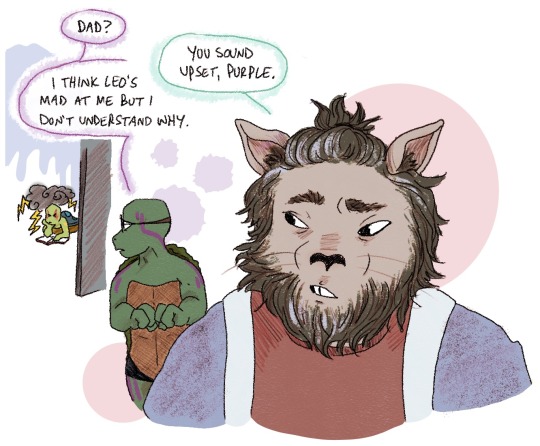
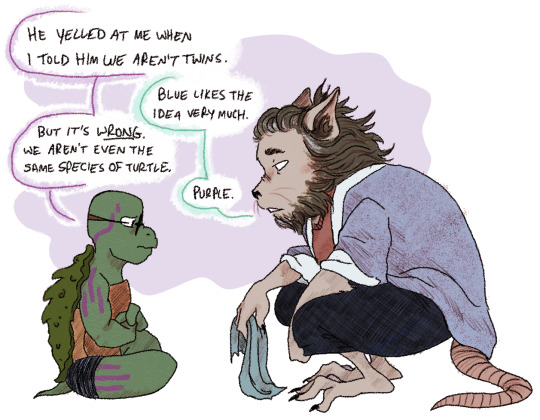

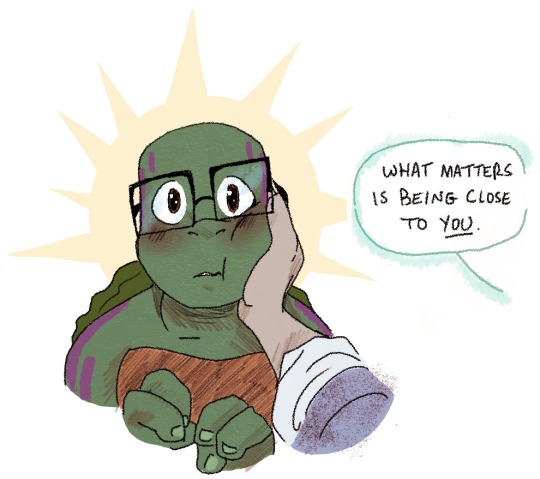
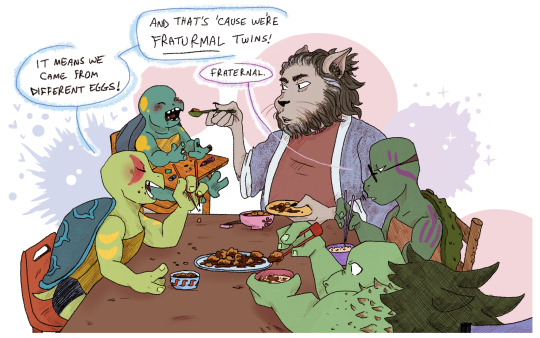
want you to want me
#behold the WIP that's been sitting unfinished for nine months. the perfect amount of time to cook up twins. I'm a genius#I just wanted to practice drawing splinter. and then drawing tots. and somehow we got here#disaster twins#ROTTMNT#TMNT#leonardo#donatello#raphael#michelangelo#splinter#turtle tots#rhinociart#featuring a magically disappearing dishcloth#the image with the most detail got scrunched down the most too........... tunglr plz I have a fandom to feed#save ROTTMNT#unpause ROTTMNT
6K notes
·
View notes